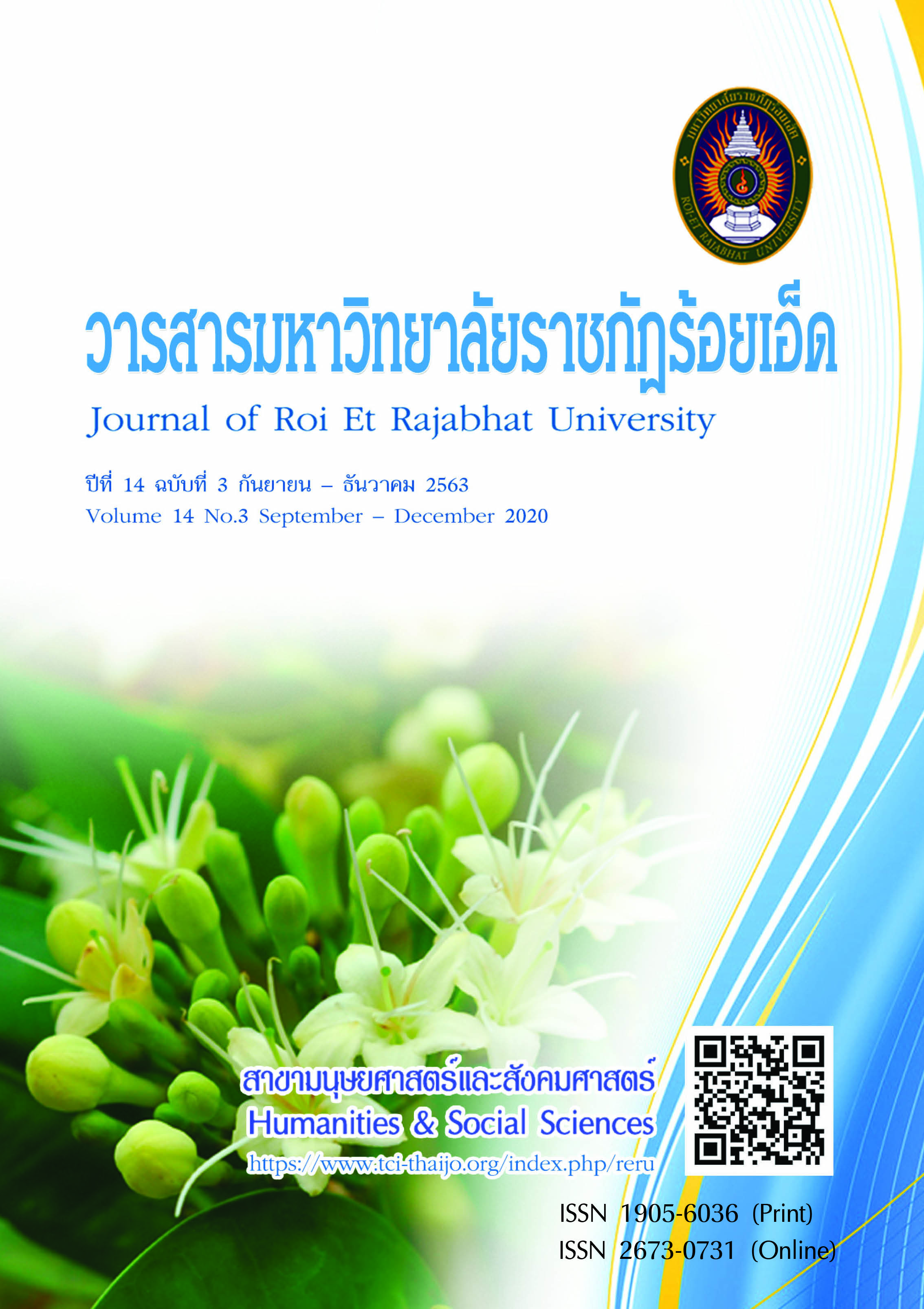The Self-construction of Organic Farmers
Keywords:
Organic farmers, Power, Technologies of the SelfAbstract
The objective of this research was to study the self-construction of organic farmers. This study was a qualitative research through Foucauldian Narrative Approach, done by conducting semi-structured interview and in-depth discussion with 13 organic farmers. This research was held at Nadee Community (assumed name) in Selaphum District, Roi Et Province. The data from the group discussion were created the concept and connected the various concepts together according to the narrative issues and led to knowledge creation through narrative. The study found that farming life that have changed to organic way was created through the power, knowledge and truth of organic agriculture. However, organic farmers in the dimension of organic self-construction have designed organic farming on relationships with the conditions and contexts of living, and have different ways to access the truth of organic-ness and can choose the suitable organic farming methods under the social goals on safe food production.
References
Bold, C. (2012). Using Narrative in Research. London: SAGE Publications.
Danaher, G., Schirato, T. and Webb, J. (2000). Understanding Foucault. London: SAGE Publications.
Fejes, A. and Nicoll, K. (2008). Foucault and Lifelong Learning: Governing the Subject, London: Routledge.
Foucault, M. (1980). Power/knowledge: selected interviews and other writings. New York: Pantheon Books.
Foucault, M. (1983). The subject and power, H. Dreyfus, & P. Rabinow (Eds.). Michel Foucault: Beyond structuralism and hermeneutics. Chicago: University of Chicago Press.
Foucault, M. (1988a). Technologies of the self, in L H Martin, H Gutman and P H Hutton (eds) Technologies of the self : a Seminar with Michel Foucault. London: Tavistock. 16-49.
Foucault, M. (1988b). An Aesthetics of Existence, in L.D. Kritzman (ed.) Michel Foucault Politics, Philosophy, Culture: Interviews and Other Writing, 1977–1984,47-53.
Foucault, M. (1997). Subjectivity and Truth, Ethics: Subjectivity and Truth, ed. P. Rabinow. NewYork: New Press.
Kristiansen, P., Taji, A., Reganold, J. (2006). Organic Agriculture: A Global Perspective. Collingwood: CSIRO Publishing.
Malette, S. (2010). Green Governmentality and its Closeted Metaphysics: Toward an Ontological Relationality. Victoria: University of Victoria.
Markula, P., & Pringle, R. (2006). Foucault, sport and exercise: Power, knowledge and transforming the self. London: Routledge.
Peters, M.A. (2003). Truth-telling as an educational practice of the self: Foucault, Parrhesia and the ethics of subjectivity. Oxford Review of Education, 29(2), 207-223.
Rutherford, S. (2007). Green governmentality: insights and opportunities in the study of nature’s rule. Progress in Human Geography. 31(3), 291–307.
Savin-Baden and Niekerk. (2007). Narrative inquiry: Theory and practice. Journal of Geography in Higher Education, 31(3), 459-472.
Tamboukou, M. (2013). Foucauldian approach to narrative, In Doing Narrative Research. London: Sage.
Downloads
Published
How to Cite
Issue
Section
License
บทความที่ได้รับการตีพิมพ์เป็นลิขสิทธิ์ของวารสารมหาวิทยาลัยราชภัฎร้อยเอ็ด
ข้อความที่ปรากฏในบทความแต่ละเรื่องในวารสารวิชาการเล่มนี้เป็นความคิดเห็นส่วนตัวของผู้เขียนแต่ละท่านไม่เกี่ยวข้องกับมหาวิทยาลัยราชภัฎร้อยเอ็ด และคณาจารย์ท่านอื่นๆในมหาวิทยาลัยฯ แต่อย่างใด ความรับผิดชอบองค์ประกอบทั้งหมดของบทความแต่ละเรื่องเป็นของผู้เขียนแต่ละท่าน หากมีความผิดพลาดใดๆ ผู้เขียนแต่ละท่านจะรับผิดชอบบทความของตนเองแต่ผู้เดียว





